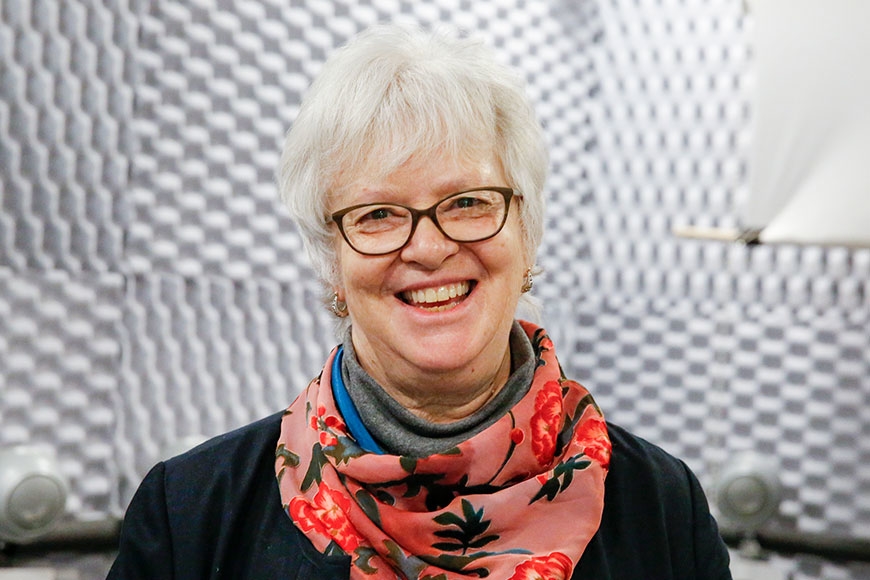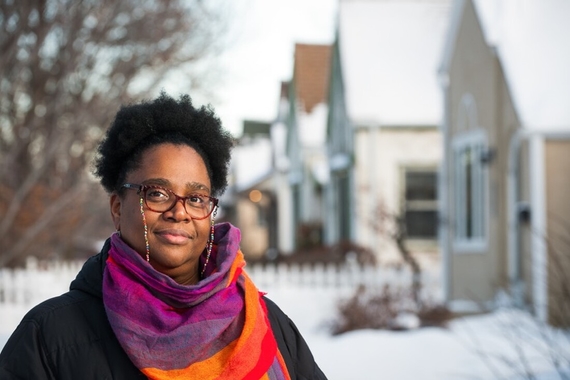Nelson Awarded Dean's Medal
“I’m pretty much a science nerd,” admits Professor Peggy Nelson. However, she doesn’t confine her interests purely to the science aspect of speech-language-hearing sciences. The fields of audiology and speech-pathology that are the focus of her academic home also have a side that can be heart-breakingly human.
Brain injuries, strokes, cerebral palsy, cleft palates, and autism are among the conditions that audiologists and speech pathologists help their patients cope with and adapt to. Researchers in these fields bring together engineering, science, psychology, and neurology to improve communication between these patients, their families, and their communities.
“They’re not super simple problems that we’re solving,” says Nelson. “They’re intriguing problems that have a human face to them.”
“The process of learning how hearing affects your experience with the world, your cognitive development, and how that information flow is critical for forming impressions and new ideas,” became a fascinating subject to her early in her academic career, says Nelson.
As an undergraduate studying math and psychology, Nelson took a practicum at the state school in Faribault, Minnesota that served students who were blind and sometimes deaf-blind. She became intrigued by the relationship between hearing and language.
After graduation, she studied American Sign Language, worked on setting up interpreter services and teletype phone service in Greensboro, North Carolina, and eventually earned her AuD from the University of Kansas. Her degree emphasis was speech perception and hearing loss. She joined the University of Minnesota Department of Speech-Language-Hearing Sciences (SLHS) in 2000.
One word that comes to mind when reviewing Nelson’s breadth of work is collaboration. She works across disciplines and connects with organizations and companies in the community.
“Peggy's work has immense breadth,” says department chair Ben Munson, “It ranges from basic-science studies of auditory perception across species, to in-the-field studies of new hearing aid technologies. This quality makes it attractive to a very diverse group of collaborators, including students. Rarely does one see a faculty member who works equally well with budding basic-science auditory perception students, practicing otolaryngologists, and biomedical engineers.”
One example of the diversity and collaborative spirit that Nelson brings has been her role in founding the Center for Applied and Translational Sensory Science (CATSS). Launched in 2016 with funding from a grant from the Office of the Vice Provost for Research and additional funds from SLHS and the Department of Psychology, this multi-sensory lab was developed, where researchers can re-create challenging listening situations to test sensory aids, hearing aids, and cochlear implants. Groups from disciplines across the University book the lab regularly to test prototypes with the goal of informing the development of devices and technologies to solve problems for people with sensory limitations like hearing and vision loss. Dozens of studies have taken place in the years since CATSS began. Outcomes from the research that’s performed in the lab have the potential to improve the quality of life of the many people who live with sensory deficits.
Before launching CATSS, Nelson served as chair of the Department of Speech-Language-Hearing Sciences from 2008-15 and led the department through difficult financial times with a “combination of realism, optimism, and, above all, grace,” says Munson. “She made certain that she found strategic ways to grow our department by looking for allies and partners in unexpected places.”
Nelson is a prolific author and has received a number of subcontract awards from small business grants, which, according to the CATSS website, “have led to fruitful collaborations between her students and local industries.” She has also mentored a number of PhD and AuD students and post-doctoral fellows. She is considered generous with advice to her colleagues and students and brings “infectious positivity and enthusiasm” to roles she has taken on in the College and the University.
Her dedication to using science to solve problems of some of the most vulnerable members of our communities, her contributions to her research field, and her service to her colleagues and students make Nelson an exemplary and multifaceted scholar.
Nelson’s work reminds Munson of the treatise of David Hull (Science as a Process, University of Chicago Press [1990]) “that science is an evolutionary process, in which individuals work together to shape ever-changing solutions to the problems we face as humans. Peggy cannot be pinned down in one sub-area, or to one method precisely because her focus is on working with others to help all of us—and especially people with hearing impairment—function better in the world.”



